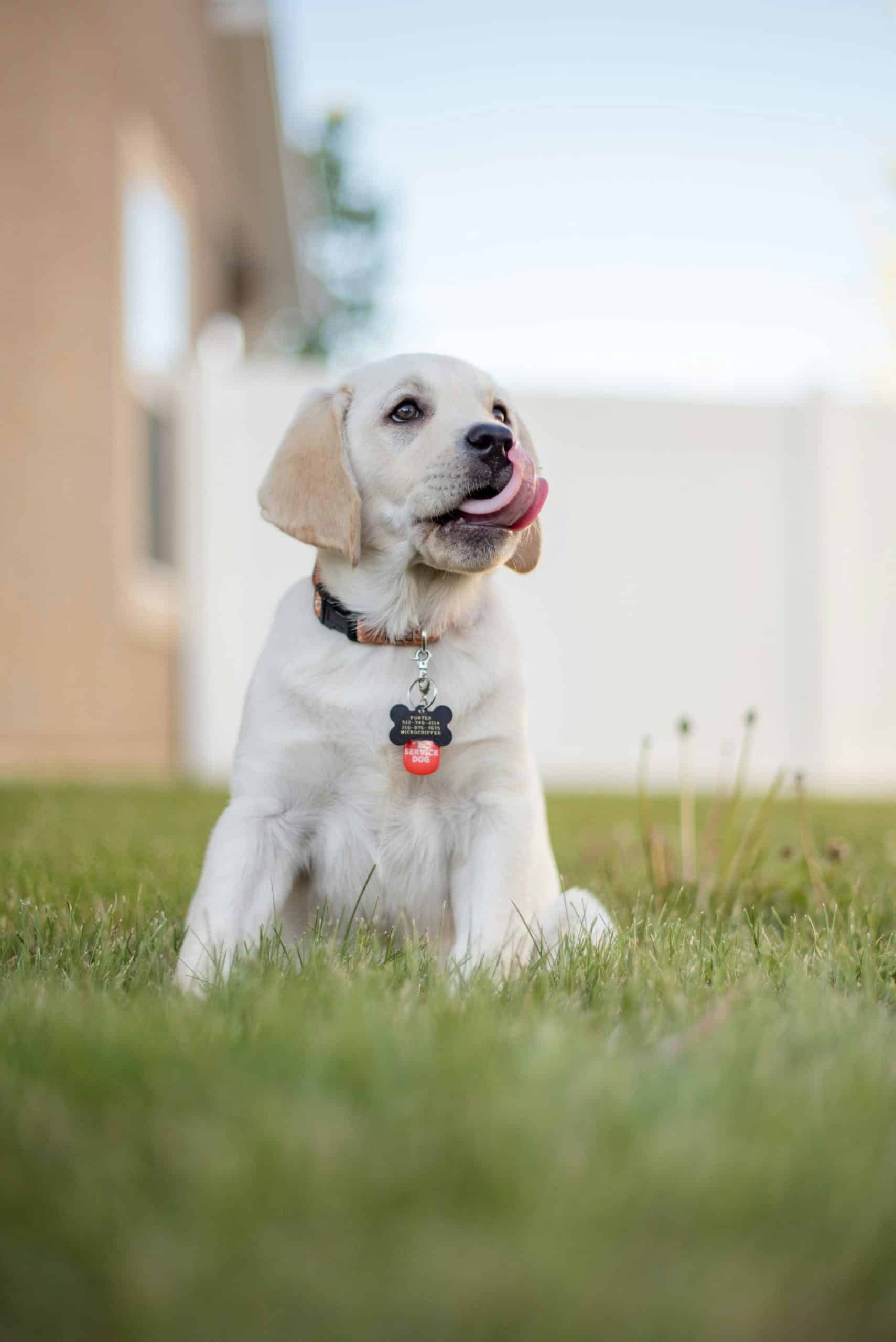Finding the perfect puppy to bring into your life is an exciting adventure, filled with joy and anticipation. In order to make this decision, it is important to consider a few key factors. Firstly, you must think about the size of the puppy's breed and how it will fit into your living space. Secondly, consider the energy level of the puppy and whether it aligns with your lifestyle. Lastly, take into account the temperament and personality traits of the breed to ensure a harmonious match with your own. By carefully considering these factors, you can embark on the journey of finding the perfect furry companion with confidence and excitement.
Selecting the Right Breed
Finding the perfect puppy starts with selecting the right breed that suits your lifestyle and compatibility. It's essential to consider factors such as the size and space requirements, the activity level and exercise needs, as well as the temperament and personality of the breed you are interested in. Additionally, if you or someone in your family has allergies or sensitivities, it's crucial to choose a breed that is hypoallergenic or has low-shedding qualities.
Lifestyle and Compatibility
When choosing a breed, it's vital to consider your lifestyle and how well a particular breed will fit into it. Are you an active individual who enjoys outdoor activities and long walks? Or do you prefer a more laid-back and relaxed lifestyle? Different breeds have different energy levels and temperaments, so selecting a breed that matches your lifestyle is crucial for ensuring a harmonious relationship with your new furry friend.
Size and Space Requirements
Another essential consideration is the size of the breed and the available space in your home. Larger breeds, such as Great Danes or Saint Bernards, require more space to move around comfortably. On the other hand, smaller breeds, like Chihuahuas or French Bulldogs, can adapt well to smaller living spaces such as apartments. It's essential to make sure that the breed's size aligns with your living conditions to ensure a comfortable and safe environment for both you and your new companion.
Activity Level and Exercise Needs
Different breeds have varying activity levels and exercise requirements. Some breeds, like Labrador Retrievers or Border Collies, are known for their high energy levels and require plenty of exercise and mental stimulation. If you're an active person who enjoys outdoor activities or has a spacious yard, these types of breeds might be a great match for you. On the other hand, if you have a more sedentary lifestyle and prefer a companion that requires less exercise, there are plenty of breeds that can thrive in a more relaxed environment.
Temperament and Personality
Understanding the temperament and personality of the breed you are considering is essential for a successful and enjoyable companionship. Some breeds are known for being friendly and outgoing, making them great family pets, while others are more reserved and independent. It's crucial to research and understand the specific characteristics and traits associated with the breed you are interested in to ensure a good fit with your personality and lifestyle.
Allergies and Sensitivities
For individuals with allergies or sensitivities, finding a breed that is hypoallergenic or has low-shedding qualities is crucial. Hypoallergenic breeds produce fewer allergenic proteins in their saliva and dander, making them a better option for allergy sufferers. It's essential to research and consider breeds that are known for being hypoallergenic, such as Poodles, Bichon Frises, or Yorkshire Terriers, to ensure a comfortable and healthy living environment for everyone in your household.
Finding a Reputable Breeder
Once you have determined the breed that suits your lifestyle and preferences, it's time to find a reputable breeder. Finding a reputable breeder is crucial to ensure that the puppy you bring home is healthy, well-socialized, and comes from a responsible breeding program.
Research and Recommendations
Start by conducting thorough research on different breeders in your area. Look for recommendations from friends, family, or reputable online sources. You can also reach out to local breed clubs or attend dog shows to gather information about breeders who specialize in the breed you are interested in. Reading reviews and testimonials from previous customers can also provide valuable insights into a breeder's reputation and the quality of their puppies.
Meeting the Breeder
Once you have a list of potential breeders, schedule a visit to their facilities. Meeting the breeder in person allows you to evaluate their professionalism, ask questions, and observe the living conditions of the puppies. A reputable breeder will be open and transparent, providing you with all the necessary information about the breed, the puppy's lineage, and their breeding practices.
Reviewing Health Certifications
A responsible breeder will prioritize the health and well-being of their puppies. They will perform health tests on their parent dogs to screen for any genetic conditions or potential health issues. Ask to see the health certifications of the parent dogs, such as hip and elbow evaluations, eye examinations, and genetic screening. These certifications ensure that the breeder is dedicated to breeding healthy puppies and minimizing the risk of hereditary diseases.
Examining the Puppy's Living Conditions
During your visit to the breeder's facility, pay close attention to the living conditions of the puppies. Ensure that they are clean, well-socialized, and have access to proper nutrition and veterinary care. Observing the puppies' behavior and interaction with their littermates can give you valuable insights into their temperament and overall well-being. A responsible breeder will prioritize a safe and nurturing environment for their puppies' early development.

This image is property of images.unsplash.com.
Health and Genetics
Health and genetics are critical considerations when selecting a puppy. Understanding potential health issues and genetic concerns associated with the breed you have chosen is crucial for making an informed decision. Additionally, ensuring that the breeder performs health testing on their parent dogs and provides thorough medical history and vaccination records for the puppy is essential for the long-term health and well-being of your new companion.
Health Issues and Genetic Concerns
Different breeds are prone to specific health issues and genetic conditions. Some breeds may be predisposed to hip dysplasia, heart conditions, or certain types of cancers. Researching and understanding the breed-specific health concerns will help you prepare and provide the necessary care for your puppy.
Health Testing of Parent Dogs
A responsible breeder will perform health tests on their parent dogs to ensure that they are free of any hereditary diseases or conditions. These tests may include hip and elbow evaluations, DNA tests for genetic disorders, and eye examinations. Ask the breeder for documentation of the health tests performed on the parent dogs to ensure that the puppies have a lower risk of inheriting any genetic conditions.
Puppy Vaccinations and Medical History
A reliable breeder will provide you with thorough medical records for the puppy, including vaccination history and any past medical treatments or procedures. Ensuring that the puppy has received appropriate vaccinations and preventive care is crucial for their overall health and protection against common diseases.
Lifetime Health Support and Guarantees
Some reputable breeders offer lifetime health support and guarantees for their puppies. This means that they will provide guidance and assistance throughout the dog's life, ensuring that you have access to resources and support regarding your dog's health and well-being. A breeder who stands by their puppies and offers such guarantees demonstrates their commitment to the breed and their dedication to responsible breeding practices.
Puppy Socialization and Training
Proper socialization and training are crucial for a well-adjusted and obedient dog. Ensuring that your puppy receives early socialization experiences and appropriate training will set the foundation for a well-behaved and balanced companion.
Importance of Early Socialization
Early socialization is a critical phase in a puppy's life. Exposing your puppy to various people, animals, and environments during their early development stages helps them become confident, adaptable, and friendly. Socialization opportunities can include puppy playdates, supervised introductions to other animals, visits to different environments (such as parks or crowded areas), and exposure to various sounds and sights.
Training and Behavioral Support
Investing time and effort into training your puppy is essential for creating a strong bond and ensuring their safety and obedience. Positive reinforcement training methods, such as reward-based training, are highly effective and promote a trusting and respectful relationship between you and your puppy. Consider enrolling in puppy training classes or working with a professional dog trainer to provide your puppy with the necessary behavioral support and guidance.
Puppy Classes and Obedience Training
Puppy training classes offer a structured and supervised environment where puppies can learn basic obedience commands and proper behavior. These classes also provide opportunities for socialization with other puppies and exposure to different stimuli. Look for reputable puppy classes in your area that focus on positive reinforcement techniques and have experienced trainers who prioritize the welfare and well-being of the puppies.
Potty Training and Basic Commands
Potty training is an essential part of raising a puppy. Consistency, positive reinforcement, and patience are key when teaching your puppy where they should eliminate. Basic commands, such as sit, stay, come, and down, are also crucial for establishing control and ensuring the safety of your puppy. Consistent training sessions, short and frequent, will help your puppy learn and retain these commands.
This image is property of images.unsplash.com.
Budget and Time Commitment
Owning a puppy involves financial and time commitments. It's essential to consider the initial costs, long-term expenses, and the time required for training, exercise, grooming, and veterinary care.
Initial Cost and Long-Term Expenses
The cost of purchasing a puppy varies depending on the breed, the reputation of the breeder, and the geographical location. Additionally, you should consider the long-term expenses related to owning a dog, such as food, grooming supplies, toys, veterinary care (including vaccinations, preventive medications, and routine check-ups), and potential emergency medical costs.
Food, Supplies, and Veterinary Care
Puppies have specific dietary needs, and investing in high-quality puppy food is essential for their growth and development. Calculate the estimated monthly cost of dog food, treats, and necessary supplies such as bowls, a leash, collar, crate, and bedding. Veterinary care, including vaccinations, routine exams, and preventive medications, should also be factored into your budget.
Time for Training and Exercise
Puppies require time and dedication for training and exercise. Training sessions should be conducted daily, focusing on basic commands and appropriate behavior. Regular exercise, such as daily walks and playtime, is essential for a puppy's physical and mental well-being. Be prepared to devote time each day to meet your puppy's training and exercise needs.
Grooming Needs and Maintenance
Different breeds have different grooming needs. Some breeds require regular brushing to prevent matting and to maintain healthy skin and coat, while others may need professional grooming. Consider the time and effort required for grooming your chosen breed and make sure you are prepared to meet those needs.
Adoption or Purchase
When deciding to bring a new puppy into your life, you have the option to adopt from shelters or rescues or buy from breeders or pet stores. It's important to weigh the ethical considerations and make an informed decision that aligns with your values.
Adopting from Shelters or Rescues
Adopting a puppy from a shelter or rescue organization can be a fulfilling and compassionate choice. By adopting, you provide a loving home for a puppy in need and help reduce the number of animals in shelters. Shelters often have a wide variety of breeds and mixed breeds available, and you may find the perfect puppy that matches your preferences while making a positive impact on the lives of animals.
Buying from Breeders or Pet Stores
Buying a puppy from a reputable breeder ensures that you will have access to information about the puppy's lineage, health records, and breed characteristics. Responsible breeders prioritize the health and well-being of their puppies and are dedicated to upholding breed standards. Purchasing from pet stores may not guarantee the same level of transparency and responsibility, as many pet stores source their puppies from commercial breeding facilities, also known as puppy mills.
Ethical Considerations
Ethical considerations should guide your decision-making process when choosing between adoption and purchasing. Adopting a puppy gives a second chance to an animal in need, while purchasing from a reputable breeder supports responsible breeding practices. By avoiding puppy mills and supporting breeders who prioritize the health and well-being of their puppies, you contribute to the welfare of dogs and discourage the inhumane treatment and exploitation of animals.
Responsible Breeding Practices
When buying from a breeder, it's important to ensure that they uphold responsible breeding practices. Responsible breeders prioritize the health and temperament of their dogs, conduct health screenings, and provide a nurturing environment for their puppies. They are knowledgeable about the breed, actively involved in breed clubs or organizations, and readily available to answer questions and provide ongoing support to puppy owners.
This image is property of images.unsplash.com.
Compatibility with Current Pets and Family
Bringing a new puppy into a household with existing pets and family members requires careful evaluation to ensure compatibility and a smooth transition for everyone involved.
Interaction and Temperament Evaluation
Before introducing a new puppy to existing pets, it's important to evaluate their temperament and socialization skills. Consider the personalities and preferences of both the new puppy and the existing pets. If possible, arrange a controlled meeting between the animals to assess their initial interactions and ensure a positive and harmonious relationship.
Introducing the Puppy to Other Pets
When introducing a new puppy to other pets, it's important to take gradual and controlled steps. Create a safe and neutral space for the initial introduction, and supervise their interactions closely. Allow the animals to acclimate to each other's scents and gradually increase their supervised time together. Providing plenty of positive reinforcement, treats, and praise can help create positive associations and improve the chances of a successful integration.
Considerations for Children and Seniors
If you have children or seniors living in your household, their needs and preferences should also be taken into account when selecting a breed and introducing a puppy. Some breeds are more suitable for families with young children due to their gentle and patient nature, while others may be better suited for households with older individuals who prefer a less energetic companion. Considering the age, activity level, and temperament of the puppy is crucial for ensuring compatibility and safety for all family members.
Family Dynamics and Lifestyle
Every household has unique dynamics and lifestyle considerations that should be considered when selecting a puppy. If you have a busy household with frequent visitors or have a specific routine or lifestyle that may not be suitable for certain breeds, it's important to choose a breed that can adapt well to those circumstances. Open and honest communication within the family will help ensure that everyone's needs and expectations are considered when making the final decision.
Puppy's Age and Stage
Deciding between a puppy and an adult dog involves considering the specific advantages and challenges associated with each stage of a dog's life.
Choosing a Puppy versus an Adult Dog
Puppies bring joy, energy, and the opportunity to shape their behavior and personality from an early age. They require more time and investment in training and socialization but offer the reward of developing a strong bond with your new companion. Adult dogs, on the other hand, may already have developed personalities and behaviors, making them more predictable and often requiring less intensive training. Consider your lifestyle, available time, and training preferences to determine whether a puppy or an adult dog is the right choice for you.
Puppy's Developmental Stages
Puppies go through several developmental stages, each with its own unique characteristics and challenges. From the neonatal stage to the socialization period and adolescence, understanding these stages will help you provide appropriate care and training to meet your puppy's specific needs. Be prepared for the challenges that come with each stage, such as teething, potty training, and the typical "adolescent rebellion," and approach them with patience and consistency.
Bringing Home a Young Puppy
Bringing home a young puppy is an exciting and joyous occasion, but it also requires careful planning and preparation. Make sure to have all the necessary supplies, such as food, water bowls, bedding, toys, and a secure crate or playpen. Create a safe and designated area for the puppy to explore and rest, and establish a consistent routine for feeding, exercise, and potty training. Supervise the puppy closely during the initial days to ensure their safety and provide guidance and support as they adjust to their new environment.
Adopting an Older Puppy or Adolescent Dog
Opting to adopt an older puppy or adolescent dog comes with the advantage of bypassing the challenging early stages of puppyhood. These dogs may already be partially trained or have some understanding of basic commands. However, be prepared to invest time and effort into building a bond and addressing any behavioral issues that may arise due to their previous experiences or lack of socialization. Patience, consistency, and positive reinforcement training methods will help a dog of any age adjust and thrive in their new home.
Long-Term Commitment
Bringing a puppy into your life is a long-term commitment that requires careful planning and consideration. Understanding the lifespan and aging process of your chosen breed, as well as preparing for potential changes in your lifestyle and circumstances, will ensure that you can provide a loving and stable home throughout your dog's life.
Lifespan and Aging
Different breeds have varying lifespans, ranging from around 10 to 15 years or even longer for some smaller breeds. Understanding the average lifespan of your chosen breed will help you plan for long-term care and provide an understanding of the stages of aging your dog may go through. Aging dogs may require specialized care, such as dietary adjustments, veterinary monitoring, and modifications to their exercise routine or living environment.
Changes in Lifestyle and Circumstances
Life is full of changes, and it's important to consider how these changes may impact your ability to care for and provide a suitable environment for your dog. Factors such as changing work schedules, starting a family, moving to a different home, or experiencing financial changes should be taken into account when adding a puppy to your life. Ensuring that you can accommodate your dog's needs throughout different stages of your life is crucial for their well-being and happiness.
Adjusting as the Puppy Grows
As your puppy grows, their needs and requirements will change. Providing appropriate adjustments to their exercise routine, diet, and training will help them transition smoothly into adulthood. Keep in mind that while their physical appearance may change, their love and loyalty will remain constant. Adapt and grow with your puppy, and continue to provide the care, attention, and guidance they need to thrive.
Planning for the Future
Planning for the future includes considering arrangements for your dog in case of emergencies or unexpected events. Identifying a trusted caregiver in case you are no longer able to care for your dog and ensuring that all necessary legal and medical documents are in place will provide peace of mind and ensure that your dog's well-being is protected.
Ethical Considerations
When embarking on the journey of bringing a new puppy into your life, it's important to be aware of the ethical considerations surrounding responsible pet ownership.
Puppy Mills and Unethical Breeders
Puppy mills are commercial breeding facilities focused solely on profit, often with little regard for the health and well-being of the animals. Dogs in puppy mills are often kept in overcrowded, unsanitary conditions and are subjected to neglect, abuse, and poor breeding practices. It is essential to avoid purchasing puppies from puppy mills or any breeder associated with unethical practices and instead support responsible breeders who prioritize the health and welfare of their dogs.
Avoiding Impulse Purchases
Bringing a puppy into your life should never be an impulsive decision. Dogs require time, commitment, and resources to thrive, and ensuring that you are fully prepared for the responsibility is crucial. Take the time to research, evaluate your lifestyle and capabilities, and ask yourself if you are ready for the long-term commitment of owning a dog before making a decision.
Adopting from Animal Welfare Organizations
Animal welfare organizations, such as shelters and rescue groups, play a vital role in providing homeless animals with a chance for a better life. By adopting from these organizations, you give an animal in need a loving home and support their mission of promoting responsible pet ownership. Furthermore, adopting from shelters and rescues often comes with the added benefit of having the animal already spayed or neutered, vaccinated, and microchipped.
Education on Responsible Pet Ownership
Educating yourself about responsible pet ownership is essential for ensuring the health, happiness, and well-being of your new companion. Stay informed about the latest research, trends, and guidelines related to dog care, training, and nutrition. By continuously learning and seeking advice from reputable sources, you can provide the best possible care for your puppy and establish a strong and lifelong bond based on trust and understanding.
In conclusion, selecting the right breed, finding a reputable breeder, considering health and genetics, focusing on puppy socialization and training, understanding the budget and time commitment, weighing adoption or purchase options, evaluating compatibility with current pets and family, considering the puppy's age and stage, recognizing the long-term commitment, and upholding ethical considerations are all key considerations for potential puppy owners. By carefully considering each aspect and making informed decisions, you can find the perfect puppy that will bring joy, companionship, and unconditional love to your life for many years to come.




